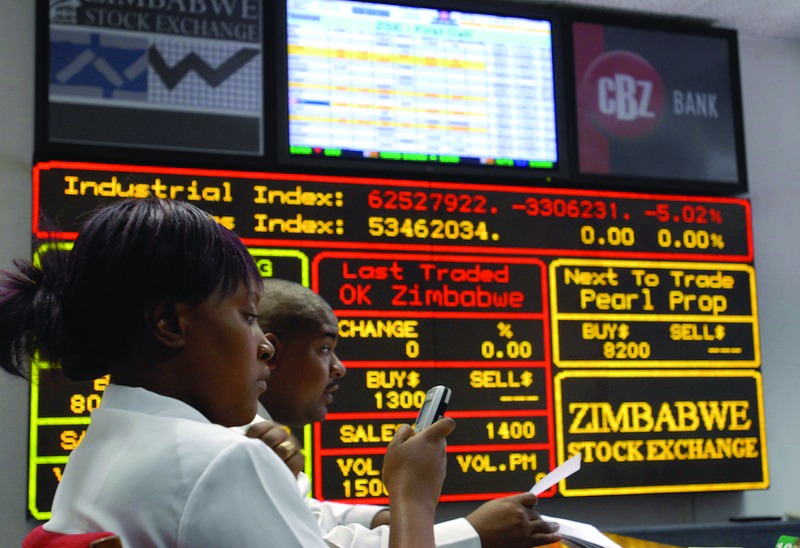 Zimbabwe’s new currency has wiped out a more than 330% gain on the stock market this year, leaving investors dealing with the fallout.
Zimbabwe’s new currency has wiped out a more than 330% gain on the stock market this year, leaving investors dealing with the fallout.
The Zimbabwe Stock Exchange All Share Index fell 99.95% since the introduction of ZiG, short for Zimbabwe Gold, on 5 April. The gold-backed ZiG succeeded the Zimbabwe dollar which had lost 80% of its value this year.
The volume of trades and value of transactions have also plunged as share prices were converted from the old currency to the new.
Prior to the conversion, investors piled into stocks as they sought refuge from the local dollar’s collapse and surging inflation that in March stood at a seven-month high of 55.3%.
The bourse offers one of the few investment options in the southern African nation for investors to hedge against exchange-rate volatility and inflation. However, a surge in stocks usually is a cause for concern and not jubilation, as it signals that the next currency crisis is around the corner.
Justin Bgoni, the chief executive officer of the bourse, said a combination of factors including the long time it took for the nation’s lenders to complete a conversion from Zimbabwe dollars to ZiG and tight liquidity conditions in the market led to the exchange’s poor performance.
“Generally, people are also hesitant and don’t understand what the value is in ZiG terms,” he said.
The decline in trading volumes has seen revenues of some brokerages fall at least 50% with most experiencing a “big hit to earnings,” said Lloyd Mlotshwa, the head of research at Harare-based brokerage firm IH Securities.
For stockbrokers, the new currency has had a domino effect resulting in low “average daily turnover which speaks to liquidity and then a knock-on effect to the stockbroking industry,” he said.
Stockbrokers in the capital, Harare said they are experiencing “a painful early winter” marked by limited trading volumes on the stock market.
Their expectation is that the entire stock market architecture — and not only the stockbroking industry which relies on market turnover — will suffer. That includes custodians, government taxes and the ZSE company which collects fees and commissions.
Imara Asset Management, the nation’s largest independent brokerage firm which oversees US$100 million in assets, also expects “some upheaval” over the next month with share prices converted to ZiG yet to find new levels.
“It would have been much more sensible for the Zimbabwe Stock Exchange to convert to US dollars in line with the Victoria Falls Stock Exchange especially now that many of the underlying listed businesses are reporting in US dollars and paying US dollar dividends,” John Legat and Shelton Sibanda, the chief executive officer and chief investment officer at Imara wrote in their April client note.
Earlier this month, Mthuli Ncube, the Finance minister, told lawmakers that he expected the ZiG to end market volatility and also stabilise asset prices on the stock exchange. The ZiG has strengthened 2% against the dollar since its debut.
It kicked off at 13.5616 on 8 April and average 13.2517 today.- Bloomberg/Own
(252 VIEWS)






0 Comments